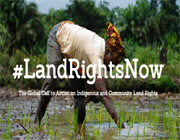The Rakhaine people have been living in different areas of Borguna and Patuakhali districts for hundreds of years. The history of these areas is intertwined with the culture, tradition, belief and social system of the Rakhaine people. However, the Rakhaine people have gradually been marginalized in their homeland in the recent times. They are being evicted from their lands — losing their homesteads, water bodies and even the places for worship. Their life, livelihood and above all their existence are under serious crisis now.
In 17th Century, Rakhaine people initiated first human habitation in the Borguna-Patuakhali areas after winning the victory over harsh nature. Even in few decades ago, the Rakhaine population in these areas was above one hundred thousand. However, as a result of the relentless land grabbing by influential local mainstream people, their population has been declined into as small as around two and a half thousand. They are constantly losing their lands and being evicted from their villages. A good number of them are have been forced to migrate to neighboring countries, particularly in Myanmar. Soon their number may come to zero. The number of Rakhaine villages was 144 in Barguna and 93 in Patuakhali in 1948. Today the Rakhine habitation is limited to only 26 and 13 villages respectively.
In this land-grabbing spree, even the ponds, temples, graveyards and cremation grounds are not left out of the list out of the land grabbers. In Kabiraj Para, a 200-year-old pond, which has been used by Rakhaines as a source of drinking water and for household activities, is now being grabbed. While there were 19 Buddhist temples and monasteries in 1906, there is only one left now. Even this temple stands with sheer negligence — all its gold-made idols have been stolen, only the wooden and brass-made idols are left. The cremation ground of Kalachandpara remains under the occupation of one local influential named Sohrab Hasan. The cremation grounds Taltali and Talukder Para have also already been grabbed. Not to mention, these are only few examples of the alarming situation of the Rakhaines.
It is a fundamental right of every citizen of the country to receive a national identity card. However, there are allegations that indigenous Rakhaines are deprived of this right. Despite having their birth certificate, Rakhaines are failing to get access to national identity cards as they are branded as Rohingya people by the administration. In fact, the identity of Rakhaine people is completely different from those of Rohingya people.
Abovementioned information have been revealed in a press conference at Dhaka Reporters Unity, Dhaka on 22 September 2014 by a team of human rights activists and civil society leaders after their on-the-spot visit in several Rakhaine-inhabited villages in Borguna-Patuakhali districts from 12-14 September 2014. The onsite enquiry team was composed Dhaka University teacher Prof. Robayet Ferdous, filmmaker Rashed Rhine, special correspondent of the Daily Observer Saleem Samad, indigenous leader Dipayan Khisa, feature reporter of the Daily Observer Asmaul Hosna, reporter of the Bhorer Kagoj Tanvir Ahmed, reporter of bdnews24.com Ashik Hosen, reporter of bangladnew24.com Jahangir Alam Sagar, project coordinator of IED Subodh Baske and Caritas Bangladesh representative Myentthein Promila. Alongside the team members, Dhaka University teacher Anurug Chakma and the executive director of IED Numan Ahmed Khan were present in the press conference.
The onsite enquiry team, based on their observation, made a 13-point recommendation to the government. The recommendations include: restitution of lands, places of worship, and cremation grounds of Rakhaine people; revocation of all false cases against Rakhaine people; undertaking actions against the land grabbers; establishment of a land commission for plains indigenous peoples; proper enforcement of the East Bengal State Acquisition and Tenancy Act 1950 for controlling land transaction by Rakhaine people; ensuring mother tongue-based primary education of Rakhaine children; taking measures to protect and promote the culture of Rakhaine people and ensuring full security of Rakhaine people living in Borguna-Patuakhali areas.



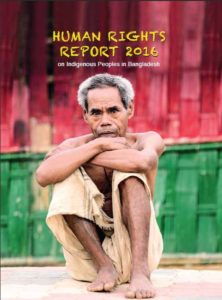
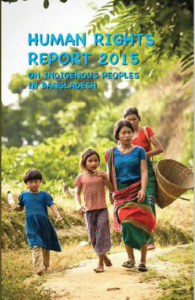
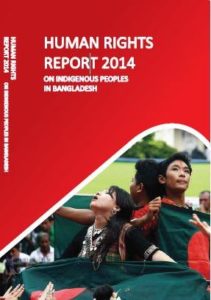
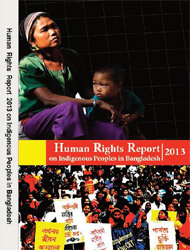
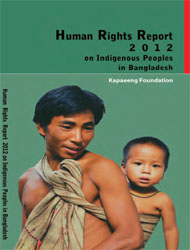
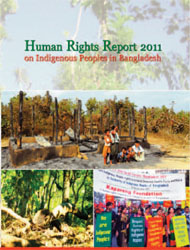
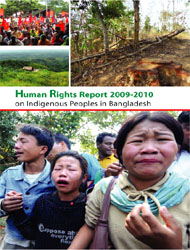

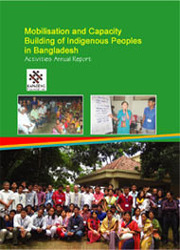



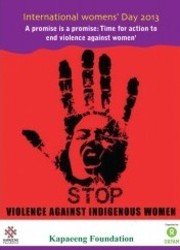
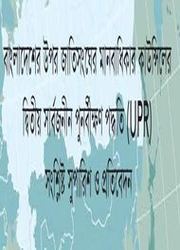
 September 24th, 2014
September 24th, 2014  KapaeengUser
KapaeengUser  Posted in
Posted in 